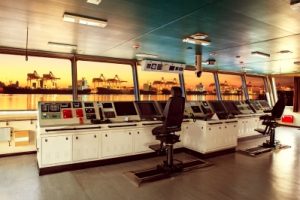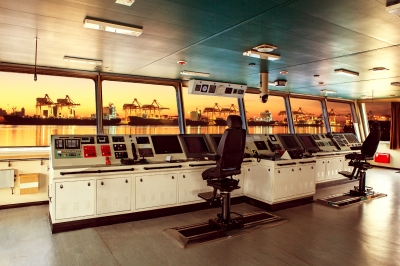 Several bills have been filed in the 17th Philippine Congress that aim to improve and boost the country’s maritime industry, including by revamping the Maritime Industry Authority (Marina).
Several bills have been filed in the 17th Philippine Congress that aim to improve and boost the country’s maritime industry, including by revamping the Maritime Industry Authority (Marina).
One of these is House Bill (HB) No. 1287, or An Act Creating the Maritime Authority of the Philippines (MAP) Thereby Repealing Presidential Decree (PD) No. 474 and for Other Purposes. The draft regulation filed by Ifugao’s lone district representative Teodoro Brawner Baguilat, Jr. seeks to reconstitute and reorganize the Marina, which was created under PD No. 474.
The lawmaker said several amendatory laws and other issuances have been issued and international maritime conventions ratified by the Philippines, “effectively modifying and expanding Marina’s functions, but with no corresponding amendment to its original and existing organizational structure.”
Baguilat noted as an example Republic Act (RA) No. 10635, which establishes Marina as the single maritime administration to implement and enforce the 1978 International Convention on Standards of Training, Certification, and Watchkeeping for Seafarers, as amended. Marina also recently activated its maritime attaché post in London intended to make the country a more attractive foreign investment destination and ship registry.
The lawmaker said Marina’s present structure is “no longer responsive to the maritime convention requirements.”
Baguilat said the proposed restructuring and reorganization not only integrates the added or expanded functions of Marina, such as those outlined in RA No. 10635, and institutes maritime attaché posts, it also aims “to improve the deteriorating state of overseas ship registry and enhance the protection and welfare of Filipino seafarers.”
The proposed MAP will function as an independent regulatory body with quasi-judicial and quasi-legislative powers and act as an attached agency of the Department of Transportation (DOTr). The authority is to be led by a director general and deputy director generals, as opposed to the current setup of having an administrator and deputy administrator.
One classification society
For the domestic shipping industry, ANGKLA Partylist representative Jesulito Manalo filed HB No. 460 proposing amendments to RA No. 9295, or the Domestic Shipping Act of 2004, specifically to Section 22, which classifies vessels in the domestic trade.
Manalo proposes that Marina accredit only one local classification society to cater to ships in the domestic trade and not allow other organizations without a certificate of accreditation or authorization from undertaking this service.
He noted that it has long been an accepted practice by maritime administrations in other countries to delegate the technical aspects of inspecting vessels to classification societies, which are experts in this field.
Unfortunately, the lawmaker said, the Philippines has seven local classification societies accredited by Marina, and with this, “the rationale behind designating classification societies to rigidly monitor the reliability of domestic ships had been compromised.” He said the cutthroat competition among these technical organizations “has contributed to more detriment that good to public health, safety, and the maritime environment.”
He added that such competition “has nurtured a negative safety environment with irresponsible ship owners escaping critical repairs and maintenance by just transferring to class with the lowest offer, but relying on lower quality of surveyors due to sub-standard wages and lack of training funding.”
“With the present situation we face, we have lost sight of the important reality that maritime safety should be dealt only with the highest regards to human lives, property, and the environment,” Manalo pointed out.
Marina had actually acknowledged the problem by issuing Circular No. 2009-24 series of 2009 in December 2009. One of the order’s objectives was to accredit only one local classification organization for ships plying the domestic trade. The order’s implementation was suspended, however, due to strong opposition of a few ship owners that would be adversely affected by the circular.
Manalo said the bill is “necessary to well assist Marina in fully implementing a positive and dynamic safety regime best left to technical experts in the classification and inspection of our domestic vessels.”
Harbor pilotage regulators
Regulations were also filed pushing to create harbor pilotage bodies that will regulate the industry.
Davao City 1st District representative Carlo Nograles and PBA Partylist representative Jonathan Jonas Nograles filed HB No. 497, which calls for a Harbor Pilotage Commission, while Manalo’s HB No. 1278 is suggesting a Pilotage Board.
“Presidential Decree 857 which granted the Philippine Ports Authority (PPA) regulatory powers over pilotage has already been unresponsive to the declared national policy of uniformity on the regulatory control of pilotage matter by the establishment of various port authorities under special charter/s separate and distinct from PPA,” the Nograles brothers said in their explanatory statement.
They added that PD No. 857 has failed to exercise its full regulatory control and supervision when it created other port authorities, including economic zones, “which arrogated upon themselves the regulatory control over pilots in their respective territorial jurisdiction without any express legislative mandate in their respective special charter/s.”
The lawmakers said this creates a pressing need to place the regulatory control and supervision of pilotage under a pilotage commission so that regulatory policies may be rationalized for uniformity and general application among all pilotage administrative policies in all ports in the country.
Improved shipping registry
Meantime, two other acts have been submitted looking to make the country a more attractive ship registry.
Baguilat filed HB No. 1288, or the Ship Registry Act of 2016, while Manalo called his HB No. 1029 the Philippine Ship Registry System Act.
Manalo said the country “must recognize that presently, there is a lack of a particular law completely addressing the registry system in the Philippines, which has been a perennial source of confusion and disorder.”
By providing a legal framework, Manalo said “ample protection will be extended to shipowners carrying the Philippine flag and all other parties who have a legitimate claim against them.” At the outset, the lawmaker said, this will benefit the country’s present domestic ship owners. Attracting more foreign ship owners to register their vessels under Philippine flag will “in turn boost more the economy of the country,” he added.
Baguilat’s bill, meanwhile, proposes a restructure of the country’s ship registry “to support constitutional provision on ownership of our ships operating in coastwise routes, encourages the entry of foreign investments in seagoing vessels, seeks to build an employment base for our Filipino seafarers who have built themselves up as the seafarer of choice for the world’s fleet, and aims to develop our capacity to provide technical-nautical management to encourage new areas of business like ship management.”
With Marina’s vision being to make the country an attractive ship registry, local shipping operators have suggested using Panama’s successful ship registry system as a pattern.
To support this vision, Manalo lodged HB No. 1027, which amends RA No. 7471, or the Philippine Overseas Shipping Act, so that income tax exemption may be given to overseas shipping companies.
In July 2004, RA No. 9301 was enacted that disqualifies overseas shipping companies from availing themselves of incentives under RA No. 7471. But Manalo pointed out that RA No. 7471 “undoubtedly supports” the government’s national policy in promoting overseas shipping.
“Indeed, the Philippines, being an archipelagic state, stands to benefit more if the overseas shipping industry is further improved and expanded,” he noted.
The lawmaker said extending income tax exemption to Philippine ship enterprises is one way for the government to boost the country’s shipping industry. He added that for the Philippine ship registry to be competitive, it should institutionalize incentives, just like other registries do. Ship owners in competitive registries such as Panama and Liberia do not pay income tax but instead pay tonnage tax.
The bill also wants Filipino ship owners to be allowed to modernize their fleet and provide stable employment to Filipino seafarers, and to contribute to the economy through payment of the common carrier’s taxes and bareboat charter taxes, and through the foreign exchange remittances of seafarers. – Roumina Pablo
Image courtesy of khunaspix at FreeDigitalPhotos.net





